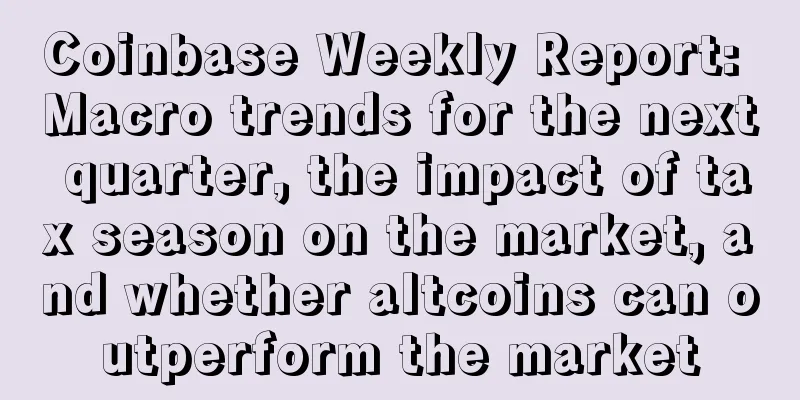Is Bitcoin the biggest “big short”?

|
Short sellers make money when the price of a targeted financial instrument falls, but they are not always welcomed by corporate or government leaders. Those who make negative bets on stocks or currencies are often portrayed as sharks who undermine people's efforts to build, develop and create value. In fact, this is short-sighted. Short selling is a necessary component of any functioning, efficient financial system. It provides liquidity, ensuring there is a seller on the other side of every bid. And in the aggregate, those occasions when short sellers ultimately win provide valuable signals about how society should better allocate its resources. I say this because Bitcoin should essentially be viewed as a massive short against the entire financial system as its price surges again. Even bigger than “The Big Short”. Bitcoin is more than just a hedge against inflation. In fact, with the consumer price index at a long-term historical low, there is no obvious correlation between the current rise in Bitcoin prices and mainstream measures of inflation. Instead, Bitcoin’s core value lies in its decentralized governance design, which is independent of the political system, a feature that no other asset of its scale and liquidity can claim, with the possible exception of gold. Its inflation-fighting position is a consequence, not its essence. If people lose confidence in the government’s ability to maintain the trust and social contract on which fiat money is built, the value of fiat money will collapse, leading to hyperinflation. Due to Bitcoin’s depoliticized status, its value will increase in this environment. So if you're long Bitcoin, you're positioned to be a beneficiary if the governance system that the entire world depends on for its safety and well-being collapses. Do you still feel good about that? Now I’m here to tell you, that’s okay. Just like short sellers of stocks didn’t crash the stock market, Bitcoin investors aren’t going to crash the system. Instead, what I hope they will do is put pressure on policymakers to reform the system in ways that better serve their constituents and preserve the social contract for money. Reading the signalI don’t know about you, but I like to think that a successful bet on long Bitcoin can lie in driving constructive improvements to the existing system, rather than destroying it outright. After watching too many episodes of The Walking Dead, I can safely say that Despairville is not for me. But let’s be clear: Bitcoin’s stunning gains do reflect growing fears that our century-old model for the governance of our global financial system is failing. The reasons include: unsustainable debt levels; weak growth despite massive quantitative easing; economic inequality; the COVID-19 shock; and how people feel a loss of agency in the lives of themselves and their communities in a decentralized social media information system where truth is called into question. Part of the problem is that the elite conversation around solutions is stuck in the assumption that the old government system will continue as is. This fuels expectations of failure, which little by little leads more and more people to believe that even if they are not “all in” on a bet on the system, they should hold some Bitcoin in case the worst happens. With all this just-in-case hedging activity, global short positions increased and the price of Bitcoin rose. We need policymakers to recognize what these market signals are telling them: that the existing model is both failed and fragile. At the moment, they don’t. Hopefully, they will soon, because we should all care. The solution should not be violent, destructive revolution, but constructive evolution. New reserve assetsThis is not an anti-establishment argument. It is definitely not an endorsement of the nihilistic spirit of Trumpism. It’s a call to recognize that bailouts (socialized corporate losses) and monetary stimulus (stock market speculators’ put options) have masked deep problems in the economy and done little to improve the happiness of the world’s citizens. It’s saying that we need a new approach to ensure a functioning market economy, one that gives everyone the ability to seize opportunities on a level playing field. If we achieve this, if the national government-managed system develops to the point where it regains popular support, then what role does Bitcoin play in this revised system? What is its greater purpose besides being a hedge against systemic collapse? If the sole purpose of an asset is to hedge against the worst-case outcome, and that outcome doesn’t occur, then where is the ongoing value of that asset? I think the purpose of Bitcoin is for it to become a social reserve asset. It’s a concept that goes beyond both the idea of reserve currencies held by governments and gold’s long-standing status as a hedge for citizens against monetary collapse. Early elements of it can be seen in how Bitcoin has been incorporated into decentralized finance (DeFi) as an uber-form of collateral. While we probably won’t be using Bitcoin to buy a cup of coffee, for that a dollar or yen or something will suffice, it will likely become a fundamental store of digital value upon which the overarching financial system is built. Right now, if you look at the global bond market, that role is filled by U.S. Treasury bills, notes, and bonds. These U.S. government debt instruments provide the underlying collateral upon which Wall Street builds a hierarchy through which financial institutions extend all other forms of credit to the outside world. But in the future, once cryptocurrency ownership and market participation are broad enough, the liquidity and maturity of digital asset markets are high enough, and price volatility decreases, Bitcoin can play a similar role. Its protocol-guaranteed scarcity, as well as its programmable nature and future interoperability with central bank digital currencies, stablecoins, and other digital assets, will ultimately become a superior underlying store of value than any trust-damaged government can provide. Don't be distracted by the strong global demand for the dollar. Confidence in the global financial system dominated by the US government is eroding, as Bitcoin short positions themselves indicate. Once this loss of trust reaches a critical point, society will need another form of underlying collateral to replace US government debt. This is the role of the world’s most important cryptocurrency in the post-crisis period. Retail investors (Joe six-pack), where are you?It’s been a huge week for Bitcoin, with the price now approaching its all-time high set in 2017 and the market capitalization already surpassing that period’s high. But in one very important respect, this rally is nothing like the one three years ago. The “FOMO” crowd, the retail investors who don’t want to miss out on other people’s big wins, has been relatively absent. And the chart below captures this beautifully. Unlike in 2017, Google search activity around the term “Bitcoin” — a proxy for curiosity among the general public — has barely budged from the levels of the past few years, even as the price has skyrocketed. Search for "bitcoin" and compare bitcoin prices Rather than retail investors, the news surrounding this up cycle is led by big-name, under-the-radar investors. This includes MicroStrategy’s Michael Saylor, hedge fund veteran Stanley Druckenmiller, Citigroup analyst Tom Fitzpatrick, and earlier today, BlackRock’s fixed income CIO Rick Rieder suggested on CNBC that the world’s largest asset manager, with more than $7 trillion under management, now believes Bitcoin is a better hedge than gold. In other words, this is a Wall Street rally, not a Pedestrian Street rally. "Once bitten, you'll be afraid of the rope for ten years" may be the reason why retail investors are sitting on the sidelines this time. Too many people rushed in at the peak of the 2017 bubble and lost their living expenses. Another possibility is that without the initial coin offering (ICO) boom, which helped hundreds of ERC-20 tokens soar along with Bitcoin, the buzz around the cryptocurrency rally would not be so loud in general. But I think it's also worth recognizing that the logic of this rally is completely different. This time it's coming against a backdrop of concerns about inflation, fiscal debt, and the outlook for political stability. These concerns are being addressed by professional investors who are taking a long-term look at Bitcoin's potential as a hedge against all of this. This isn't a get-rich-quick rally, it's more of an insurance play. That’s not to say the big guys don’t want to make a killing, too. Nor is it to say that at some point this “professional” rally won’t inspire another round of FOMO among the masses. While some investors are starting to hold themselves back from getting thrown off the train, the fact that retail investors haven’t jumped in en masse yet could be a sign that Bitcoin still has room to run. Global Town HallDifferent assorted. “Innovation” is a magical buzzword that conveys progress and boldness. This quality makes it ideal for obfuscation. Case in point: an article on the website of the Official Monetary and Financial Institutions Forum (OMFIF) this week titled “The Second Wave of Central Bank Policy Innovation.” If you’re looking for descriptions of radical new digital currency projects in places like the Bahamas, Thailand, and China, you won’t find them in this report. By “innovation,” I mean new tools of all kinds, where central banks are simply extending their existing playbooks into new areas, specifically by injecting money into their financial systems by buying a wider range of assets. This is a more extreme, riskier version of the same new policy “tool” that emerged after interest rates were pushed to near zero following the 2008 crisis: quantitative easing. The problem with endless "quantitative easing" is that central banks have run out of government bonds to buy; fiscal issuance can't keep up. So, to keep up monetary expansion, they are reaching out to riskier asset classes, including municipal and corporate bonds. The US Federal Reserve has already set an example with its Secondary Market Corporate Credit Facility, which it uses to buy corporate bonds, and has a separate program to buy municipal bonds. Now, we've learned from OMFIF that following the Bank of England's "launch of a Term Funding Scheme for SMEs" in March, central banks in Australia, Taiwan, New Zealand, and elsewhere have adopted the same model. Through these programs, central banks, which are supposed to be politically independent, become creditors of entities whose interests can be politicized. If these new debtors face default in a post-pandemic debt liquidation, they will be tempted to appeal to the support of politicians they support to pressure central banks to forgive or restructure these debts. This is what ultimately destroys fiat currencies. These bonds, now sitting gorgeously on central bank balance sheets as private or political assets, will likely become more than the primary liability: the monetary base. Politicizing these assets raises concerns about their future value, undermining confidence in the currency. So while the OMFIF article says these efforts show that “central banks have demonstrated a continued willingness to reshape their monetary policy toolkit,” you could equally say they have demonstrated a continued willingness to double down on a decade-old bet that has reached the end of its usefulness. Elite Factory: Biologists offer a unique perspective on complex systems such as economies. In studying how ecosystems and species populations reach breaking points caused by resource supply and consumption dynamics, they discover patterns that human societies tend to emulate over the long term. In this context, a recent observation by pine beetle expert-turned-cultural theorist Peter Turchin is somewhat startling. As Graeme Wood explains in The Atlantic, Turchin argues that hierarchical systems in Western societies such as the United States are exacerbating tensions due to the “overproduction of elites.” Societies that orient their education and career systems toward rewarding a privileged but relatively large minority are struggling to find constructive uses for them, while leaving the majority of people outside the elite bubble with no room to rise. Turchin believes this is the root cause of the unrest that has played out in events like the 2020 election, and it remains unresolved. It has led to a breakdown in trust and the failure of institutions. What does this have to do with cryptocurrency and blockchain? Well, at least in theory, these systems should encourage participation in open source, collaborative development, and, in their purest form, require no identification to participate. Crypto-based bug bounties, for example, could reward any developer who finds a vulnerability in software code, regardless of their identity or educational background. Yet it would be naive to think that the blockchain development community is utopian. The privileges of environment and upbringing reward some people over others in various ways. It’s no accident that the vast majority of crypto engineers are white men. It’s a product of the superstructure that society has formed — what Turchin calls the hierarchy, working toward its own oblivion. The trick is how to take the best of these open development models while proactively seeding newcomers from outside the existing elite production facilities of top universities. Tip of the iceberg: The debt crisis triggered by COVID-19 remains on hold. Once stopgap measures such as rent freezes and mortgage forbearances run out next year, the situation will get worse as overstretched creditors start demanding what’s theirs. Indeed, as this Wall Street Journal examination of the U.S. government’s aggressive efforts to provide Payroll Protection Program loans to small businesses shows, the fallout may have already begun. The reporters found that “about 300 companies that received up to $500 million in pandemic-related government loans have filed for bankruptcy.” Those numbers are sure to rise. And as any student of debt crises knows, bankruptcies breed more bankruptcies. Every default by a debtor leaves their creditors with less money to pay their debts. A self-perpetuating cycle sets in. I think this looming question is the core driver of the big name investors flocking to it. The delayed bailout needs that governments around the world will face are far greater than the ones they already face. Will they be able to raise taxes to pay for these bailouts? Hardly. So, many will call on their central banks to do more, even more than they already are, to try to keep their economies afloat. The social contract of money is in jeopardy, and Bitcoin offers an alternative. |
>>: What should we do if Bitcoin stays above $18,000 in the short term?
Recommend
What kind of face does a woman have bad luck?
What kind of face does a woman have bad luck? 1. ...
Career fortune from face reading: How to tell career fortune from a woman's face reading
If some women judge their careers by looking at t...
Hardware Issues Could Corrupt Bitcoin Private Keys
Gemini's chief security officer, Cem Payali, ...
Palmistry of marriage lines for unhappy marriages
Our palmistry can predict many things. In fact, t...
A man with thick upper lip and thin lower lip has a very good facial appearance.
A person's character and the way he or she be...
OKex responds to OK06 index surge of 8000%: data display error, being fixed
Today, some users reported that the OK06 index on...
What does it mean to have a big head and a small face and never be able to live forever?
A person's body proportions are actually very...
The market rebounded and retail investors began to enter the market
Author | Hashipi Analysis Team...
Rootstock: Bitcoin-powered smart contracts
Rootchain Platform - Bitcoin-driven Smart Contrac...
Women's faces to see whether the marriage is unhappy: Women's faces to see whether the marriage is unhappy
It can be directly seen from a woman’s marriage t...
How to tell the time of marriage from face reading
When the wedding date is, how early or late the m...
Thick and protruding chin
Beautiful girls who like taking selfies prefer to...
IBM and MUFG Bank jointly conduct pilot project based on Hyperledger
Rage Review : The Hyperledger Project is an open ...
Palmistry characteristics that are detrimental to marriage
Palmistry characteristics that are detrimental to...
How does physiognomy determine the nose?
The nose is Mount Tai, the central mountain, belo...









